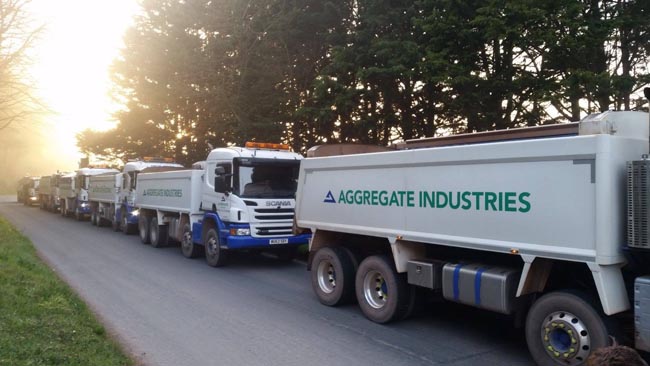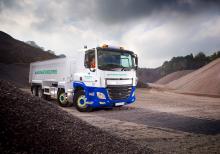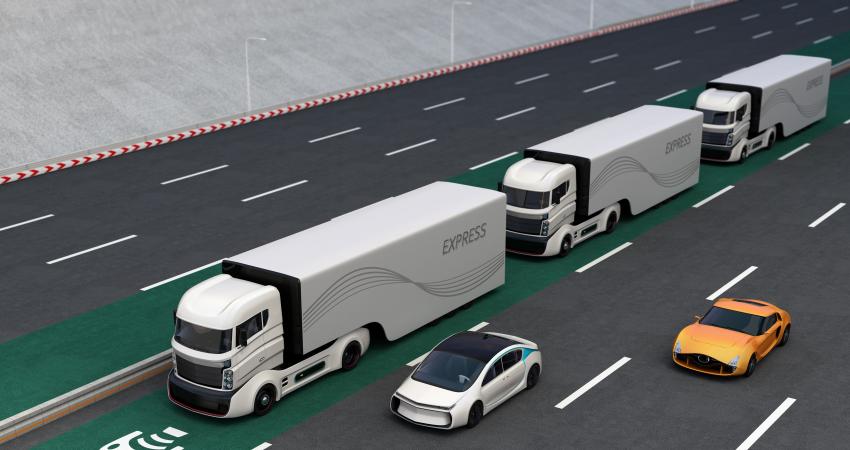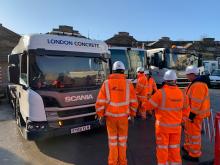
With traffic levels on Britain’s roads reaching record levels and heavy goods vehicles (HGVs) traffic identified as the second fastest growing traffic type in recent years,
Official statistics estimate that 327 billion vehicle miles were travelled on UK roads during the period of July 2017 to June 2018 – a 2% increase over the last two years – with HGV traffic making up 17.2 billion vehicle miles. This has brought fresh safety concerns, as more vehicles on the roads and more traffic means increased risk – with dangerous lorry driving often at the heart of the highly-publicised road safety issue. Reports estimate that almost a quarter of injuries caused by crashes with HGVs are fatal or serious, compared to a one in eight (13%) car crash average, and that one in three (34%) drivers have had a crash or near miss with a lorry.
In response, some councillors have campaigned for a ban on lorry drivers overtaking while others have called for the use of satellite navigation systems to be forbidden after a rise in the number of HGVs crashing into low bridges because they ‘followed navigation systems’. More recently, Highways England announced plans to deploy three new HGV ‘supercabs’ on the roads to spot drivers behaving badly behind the wheel – with lorry drivers being a key target.
Nowhere is this more prevalent than the fast-paced construction industry where delivery frames are tight, volumes are high and pressures can be great. For businesses managing vast vehicle operations or haulier networks under increasing deadline pressures, this means it is more important than ever to pay due diligence to vehicle safety protocols.
Ben Young, Head of Road Logistics at Aggregate Industries, said: “It has never been more important for construction companies to ensure that all vehicle operations, whether in-house or outsourced, are designed to be as rigorous and safe as possible.
“At Aggregate Industries, for example, we operate an incredibly robust approach to the enrolment of our 1,000-plus franchisee drivers, coupled with a holistic maintenance programme. Our approach to our ongoing commitment to H&S is just as diligent, whereby we have a team of eight expert compliance managers who work with our franchisee hauliers, covering the length and breadth of the country, in order to promote best practice. This includes advice on key safety aspects that are unique to our sector; for example, we recently held sessions on handling frozen aggregate carefully to mitigate the risk of tip-overs and how to limit the risk of slips and trips during the severe winter weather.
“We also use a state-of-the-art telematics system to monitor the driving behaviour and styles of our franchisee hauliers on a daily basis – picking up everything from mileage, speed and fuel consumption. Here, certain red flags such as lots of harsh braking, erratic starting and stopping or even a sudden spike in fuel consumption can signal issues that must be addressed. It can help us to spot best practice within our haulier community and ensure we are doing all we can to encourage safety on the roads. It is this dedication to going the extra mile that inspires customer confidence, especially in an area as important as road safety.”
Asides from monitoring what is happening on the road through telematics, Aggregate Industries adheres to a standard vehicle specification, which franchisee hauliers are required to adopt, that has been designed to protect road users externally. Through the use of state-of-the-art side scanners, vehicles can detect if a cyclist or pedestrian comes close and will alert the driver accordingly - plus if a driver is preparing to turn left, a high risk area for cyclists, an alert will be sounded for those outside the vehicle.
At this time of a widening housing deficit and ambitious new build targets, there is no doubt that the pressure is on for the construction industry to deliver – and fast. However, this cannot be done to the detriment of safety, and with growing logistical needs coupled with increased traffic, it becomes more important for businesses, even when outsourcing their transport operations, to make sure that they are adopting best practice at all times and putting safety firmly in the driving seat.









